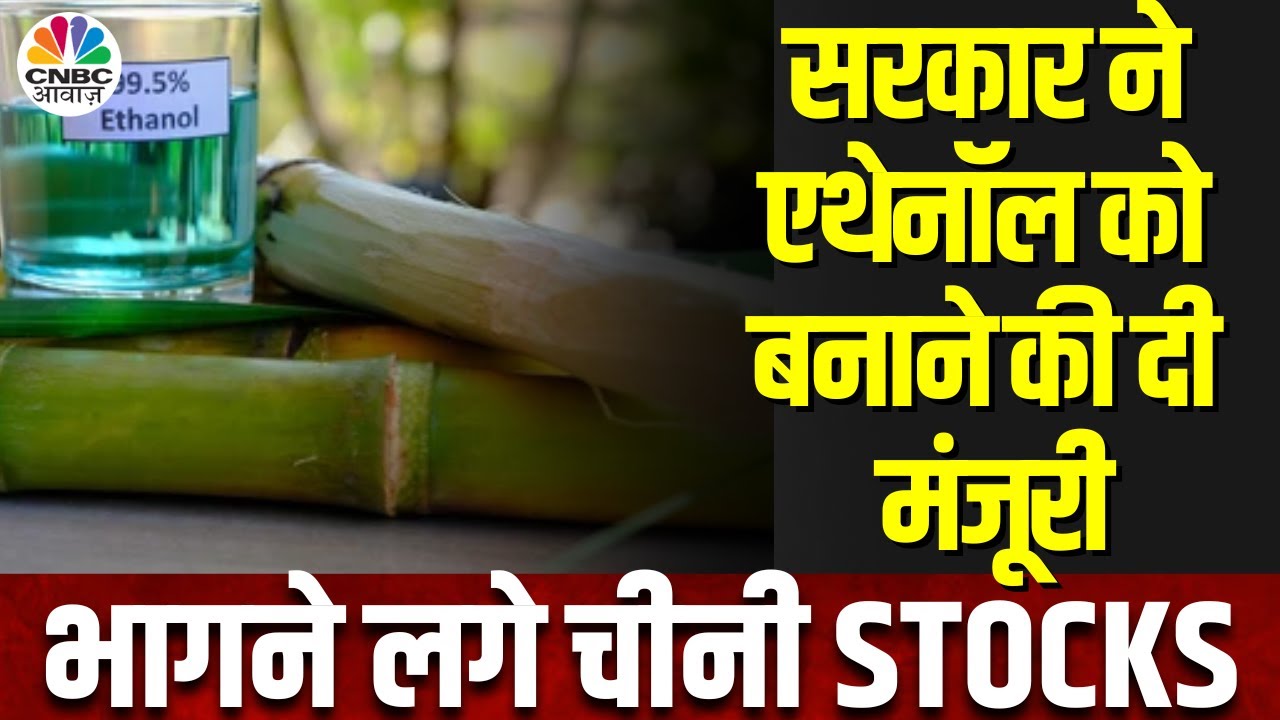4th Edition of Sugar-Ethanol & Bio Energy India Conference 2025, New Delhi | Nitin Gadkari
Summary
TLDRThe speaker discusses the challenges and opportunities within the sugar cane industry, focusing on the potential of alternative fuels like ethanol, bio-CNG, and hydrogen. Emphasizing innovation and government support, they highlight diversification and the importance of research in shaping the industry’s future. Despite current obstacles, such as high production costs and market pressures, the speaker remains optimistic, stressing that the industry can contribute significantly to GDP, improve farmers' prosperity, and move towards a more sustainable, self-sufficient future.
Takeaways
- 😀 The sugar cane industry contributes 1-3% to India's GDP, supporting agriculture and rural economies.
- 😀 The sugar industry is one of the most profitable sectors for farmers, with sugarcane offering high margins per acre.
- 😀 Government policies need to balance regulation and support to avoid hindering industry growth.
- 😀 There is a growing focus on biofuels like ethanol, which can reduce reliance on fossil fuels and offer new opportunities for the sugar industry.
- 😀 Ethanol production is a key strategy to improve energy security and contribute to India's green energy initiatives.
- 😀 Diversifying the sugar industry into green energy solutions, such as CNG and hydrogen, is essential for future growth.
- 😀 Technological innovations in the sugar industry, such as electric vehicles and renewable energy, will reduce the carbon footprint and increase industry sustainability.
- 😀 The Indian government is committed to supporting the ethanol sector and its role in combating air pollution and reducing fuel imports.
- 😀 There is a vision for the sugar industry to contribute significantly to the nation's energy supply, with plans to export ethanol and produce bio-CNG from agricultural waste.
- 😀 A positive outlook on the industry's future is essential, as collaboration between farmers, industry leaders, and the government can drive long-term success.
Q & A
What is the main theme of the speech?
-The main theme of the speech is the future of the sugar industry in India, focusing on diversification, the government's support, and the integration of alternative energy solutions like ethanol and biofuels.
How does the speaker view the future of the sugar industry?
-The speaker is optimistic about the future of the sugar industry, emphasizing that with innovation, diversification, and government support, the industry can contribute significantly to the economy and benefit farmers.
What role does government support play in the sugar industry's development?
-Government support is crucial for the growth of the sugar industry, particularly in research, policy making, and the promotion of alternative energy solutions like ethanol, which can reduce dependence on fossil fuels and boost GDP.
What challenges does the sugar industry face according to the speech?
-The industry faces challenges such as government control, policy unpredictability, and the difficulty of balancing the production of sugar with the demand for biofuels and ethanol.
Why is diversification important for the sugar industry?
-Diversification is important because it allows the industry to adapt to changing market conditions, such as the shift toward biofuels, and can help reduce reliance on traditional sugar production while boosting the economic contribution of the industry.
How does the sugar industry contribute to India’s economy?
-The sugar industry contributes significantly to India's GDP, particularly through agriculture. Sugarcane is one of the highest margin crops, and the industry also supports the livelihoods of farmers, laborers, and rural communities.
What future technologies are mentioned as important for the sugar industry?
-Technologies like biofuels, electric vehicles, hydrogen energy, bio-CNG, and biomass conversion are crucial for the future success of the sugar industry, helping it move toward sustainability and reducing dependence on fossil fuels.
What is the role of ethanol in the sugar industry’s future?
-Ethanol is seen as a key driver for the future of the sugar industry. It can help in reducing fossil fuel imports, create new markets for the sugar industry, and provide value addition to sugarcane production.
How does the speaker address the concerns about the ethanol policy?
-The speaker reassures the audience that while the ethanol policy initially caused concern, the industry must keep moving forward with confidence, as the government's ongoing support will help ensure success.
What is the speaker’s overall message to the industry?
-The speaker encourages the industry to remain positive, embrace innovation, and work with the government to overcome challenges. They assure that with continued effort, the industry will succeed and contribute significantly to the welfare of farmers and the economy.
Outlines

This section is available to paid users only. Please upgrade to access this part.
Upgrade NowMindmap

This section is available to paid users only. Please upgrade to access this part.
Upgrade NowKeywords

This section is available to paid users only. Please upgrade to access this part.
Upgrade NowHighlights

This section is available to paid users only. Please upgrade to access this part.
Upgrade NowTranscripts

This section is available to paid users only. Please upgrade to access this part.
Upgrade NowBrowse More Related Video

Govt May Relook At Restrictions On Sugar Exports Only By The End Of CY24: Elara Sec | CNBC TV18

Why is Bajaj betting on CNG while everyone else is focused on EVs?: Business Case Study

Climate Action: The Net Zero Economy (w/ John Stackhouse, RBC)

Sugar Stocks To Buy |शुगर सेक्टर को मिली राहत, गन्ने के रस/ Juice से बनेगा Ethanol | Balrampur Chini

CELLULOSIC BIOMASS: Part 2 - Redesigning Crops for Biofuel and Bioproducts

How Brazil Dominates Sugar Production Without Burning Fields | Big Business | Business Insider
5.0 / 5 (0 votes)